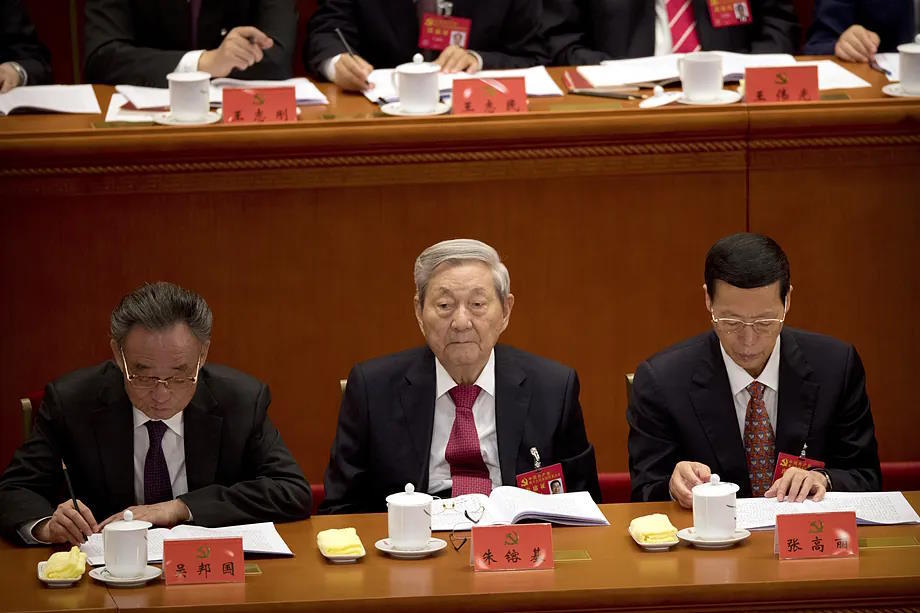Zhu Rongji was once a trending topic on Chinese social media because he appeared with gray hair at a Communist Party congress. The leaders of the giant Asian country traditionally have showcased meticulously dyed jet-black hair under the spotlight. But Zhu, at the age of 84 at the time, was the first to dare to break with a protocol inherited from the times of Mao Zedong.
Zhu has always been characterized as a groundbreaking and pragmatic politician who advocated for economic openness towards the West, breaking down trade barriers, streamlining bureaucracy, and embracing foreign capital. He was a key figure in the Chinese economic miracle.
As 75 years have passed since the Chinese Communist Party (CCP) came to power in Beijing on Tuesday, ending a long civil war with Mao Zedong announcing the birth of the People's Republic of China, we delve into the profile of one of the most unknown fathers of modern China, one of those who are still alive.
Zhu (95 years old), an electrical engineer, was once dubbed by the local press as the "economic czar" of the 1990s. He had a free hand to introduce the reforms cooked up during Deng Xiaoping's era, who was the leader that brought him from Shanghai, where Zhu was the party chief, to the Beijing Politburo Standing Committee, the highest governing body.
Zhu led the negotiations for China's entry into the World Trade Organization (WTO) in 2001, a move that changed the history of a country that was languishing in the mid-20th century due to a severe famine with millions of deaths.
The wild ascent since then has propelled China to become the world's second-largest economy, the global factory, and to lift over 800 million people out of poverty - according to official figures. An undeniable success that coexists with the less friendly side of a regime where censorship, forced disappearances, extrajudicial executions, and the despotism of a government that silences criticism have prevailed.
Before wholeheartedly embracing party discipline and becoming a respected political figure, Zhu also suffered repression from Beijing. When the CCP won the civil war against the Nationalists of the Kuomintang, he joined the Communist Youth League and began to rise within the planning bodies. These were the years of industrialization driven by Mao, with his programs of economic centralization, collective work brigades, and prohibition of private property. But Zhu soon began to express ideas contrary to the party line, leading to his demotion to a professor at an academy for officials.
After a brief rehabilitation, he was purged again with the arrival of the Cultural Revolution and ended up working in the fields as a farmer. He had to wait for Deng Xiaoping's economic reform program for Beijing to once again seek his services, first at the Ministry of Commerce and later as the head in Shanghai, where he laid the groundwork for the city to become one of the world's financial capitals.
When he entered the exclusive club of Chinese leaders in the Politburo, Zhu took charge of the central bank and eventually became prime minister. He has been out of the frontline for over 15 years, but even in retirement, he wanted to provide one last service: appearing in public with gray hair to end the unwritten rule that old leaders must dye their hair.
